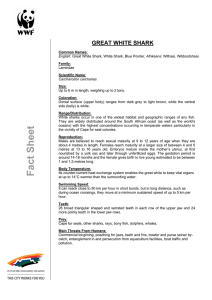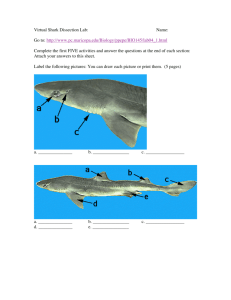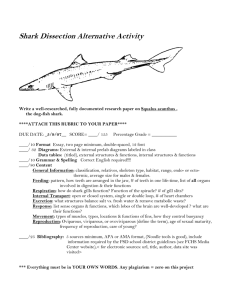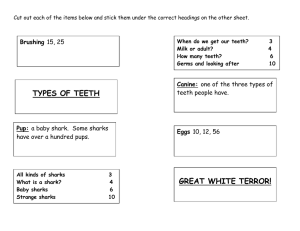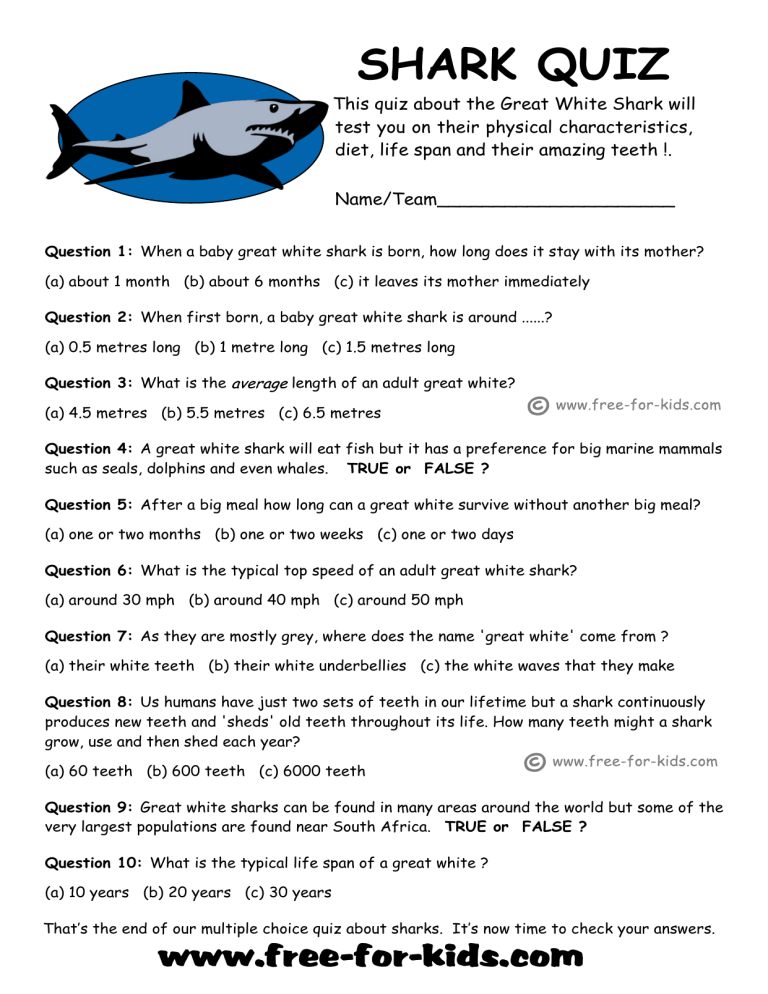
SHARK QUIZ This quiz about the Great White Shark will test you on their physical characteristics, diet, life span and their amazing teeth !. Name/Team_____________________ Question 1: When a baby great white shark is born, how long does it stay with its mother? (a) about 1 month (b) about 6 months (c) it leaves its mother immediately Question 2: When first born, a baby great white shark is around ......? (a) 0.5 metres long (b) 1 metre long (c) 1.5 metres long Question 3: What is the length of an adult great white? (a) 4.5 metres (b) 5.5 metres (c) 6.5 metres Question 4: A great white shark will eat fish but it has a preference for big marine mammals such as seals, dolphins and even whales. TRUE or FALSE ? Question 5: After a big meal how long can a great white survive without another big meal? (a) one or two months (b) one or two weeks (c) one or two days Question 6: What is the typical top speed of an adult great white shark? (a) around 30 mph (b) around 40 mph (c) around 50 mph Question 7: As they are mostly grey, where does the name 'great white' come from ? (a) their white teeth (b) their white underbellies (c) the white waves that they make Question 8: Us humans have just two sets of teeth in our lifetime but a shark continuously produces new teeth and 'sheds' old teeth throughout its life. How many teeth might a shark grow, use and then shed each year? (a) 60 teeth (b) 600 teeth (c) 6000 teeth Question 9: Great white sharks can be found in many areas around the world but some of the very largest populations are found near South Africa. TRUE or FALSE ? Question 10: What is the typical life span of a great white ? (a) 10 years (b) 20 years (c) 30 years That’s the end of our multiple choice quiz about sharks. It’s now time to check your answers. www.free-for-kids.com ANSWERS TO OUR SHARK QUIZ Answer 1: (c) it leaves its mother immediately Answer 2: (c) around 1.5 metres long Answer 3: (a) 4.5 metres (although large specimens exceeding 6 metres have been recorded) Answer 4: True. Sharks get valuable energy from the fat of large marine mammals. Answer 5: (a) one or two months Answer 6: (b) around 40 mph Answer 7: (b) their white underbellies Answer 8: (c) 6000 teeth. This is why fossilised shark teeth are extremely common. Answer 9: True Answer 10: (c) 30 years www.free-for-kids.com
